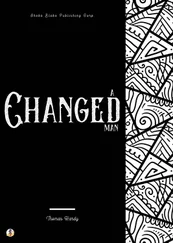Sheba Blake - Anarchism
Здесь есть возможность читать онлайн «Sheba Blake - Anarchism» — ознакомительный отрывок электронной книги совершенно бесплатно, а после прочтения отрывка купить полную версию. В некоторых случаях можно слушать аудио, скачать через торрент в формате fb2 и присутствует краткое содержание. Жанр: unrecognised, на английском языке. Описание произведения, (предисловие) а так же отзывы посетителей доступны на портале библиотеки ЛибКат.
- Название:Anarchism
- Автор:
- Жанр:
- Год:неизвестен
- ISBN:нет данных
- Рейтинг книги:4 / 5. Голосов: 1
-
Избранное:Добавить в избранное
- Отзывы:
-
Ваша оценка:
- 80
- 1
- 2
- 3
- 4
- 5
Anarchism: краткое содержание, описание и аннотация
Предлагаем к чтению аннотацию, описание, краткое содержание или предисловие (зависит от того, что написал сам автор книги «Anarchism»). Если вы не нашли необходимую информацию о книге — напишите в комментариях, мы постараемся отыскать её.
Anarchism — читать онлайн ознакомительный отрывок
Ниже представлен текст книги, разбитый по страницам. Система сохранения места последней прочитанной страницы, позволяет с удобством читать онлайн бесплатно книгу «Anarchism», без необходимости каждый раз заново искать на чём Вы остановились. Поставьте закладку, и сможете в любой момент перейти на страницу, на которой закончили чтение.
Интервал:
Закладка:
As regards the standpoint which I have taken in this book upon questions of fact, it is strictly the coldly observant and critical attitude of science and no other. I was not concerned to write either for or against Anarchism, but only to tell the great mass of the people that concerns itself with public occurrences for the first time what Anarchism really is, and what it wishes to do, and whether Anarchist views are capable of discussion like other opinions. The condemnation of Anarchism, which becomes necessary in doing this, proceeds exclusively from the exercise of scientific criticism, and has nothing to do with any partisan judgment, be it what it may. It would be a contradiction to adopt a partisan attitude at the very time when one is trying to remind public opinion of a duty which has been forgotten in the heat of party conflict.
But I do not for a moment allow myself to be deluded into thinking that, with all my endeavours to be just to all, I have succeeded in doing justice to all. Elisée Reclus wrote to me, when I informed him of my intention to write the present book, and of my opinion of Anarchism, that he wished me well, but doubted the success of my work, for (he said) on ne comprend rien que ce qu’on aime . Of this remark I have always had a keen recollection. If that great savant and gentle being, the St. John of the Anarchists, thinks thus, what shall I have to expect from his passionate fellow-disciples, or from the terror-blinded opponents of Anarchism? “We cannot understand what we do not love,” and unfortunately we do not love unvarnished truth. Anarchists will, therefore, simply deny my capacity to write about their cause, and call my book terribly reactionary; Socialists will think me too much of a “Manchester Economist”; Liberals will think me far too tolerant towards the Socialistic disturbers of their peace; and Reactionaries will roundly denounce me as an Anarchist in disguise. But this will not dissuade me from my course, and I shall be amply compensated for these criticisms which I have foreseen by the knowledge of having advanced real and serious discussion on this subject. For only when we have ceased to thrust aside the theory of Anarchism as madness from the first, only when we have perceived that one can and must understand many things that we certainly cannot like, only then will Anarchists also place themselves on a closer human footing with us, and learn to love us as men even though they often perhaps cannot understand us, and of their own accord abandon their worst argument, the bomb.
E. V. ZENKER.
I
Early Anarchism
“A hundred fanatics are found to support a theological or metaphysical statement, but not one for a geometric theorem.”
CESARE LOMBROSO.
One
Precursors and Early History

“Die Welt wird alt und wird wieder jung Doch der Mensch hofft immer auf Besserung.”
Anarchy means, in its ideal sense, the perfect, unfettered self-government of the individual, and, consequently, the absence of any kind of external government. This fundamental formula, which in its essence is common to all actual and real Theoretical Anarchists, contains all that is necessary as a guide to the distinguishing features of this remarkable movement. It demands the unconditional realisation of freedom, both subjectively and objectively, equally in political and in economic life. In this, Anarchism is distinct from Liberalism, which, even in its most radical representatives, only allows unlimited freedom in economic affairs, but has never questioned the necessity of some compulsory organisation in the social relationships of individuals; whereas Anarchism would extend the Liberal doctrine of laisser faire to all human actions, and would recognise nothing but a free convention or agreement as the only permissible form of human society. But the formula stated above distinguishes Anarchism much more strongly (because the distinction is fundamental) from its antithesis, Socialism, which out of the celebrated trinity of the French Revolution has placed another figure, that of Equality, upon a pedestal as its only deity. Anarchism and Socialism, in spite of the fact that they are so often confused, both intentionally and unintentionally, have only one thing in common, namely, that both are forms of idolatry, though they have different idols, both are religions and not sciences, dogmas and not speculations. Both of them are a kind of honestly meant social mysticism, which, anticipating the partly possible and perhaps even probable results of yet unborn centuries, urge upon mankind the establishment of a terrestrial Eden, of a land of the absolute Ideal, whether it be Freedom or Equality. It is only natural, in view of the difficulty of creating new thoughts, that our modern seekers after the millennium should look for their Eden by going backwards, and should shape it on the lines of stages of social progress that have long since been passed by; and in this is seen the irremediable internal contradiction of both movements: they intend an advance, but only cause retrogression.
* * *
Are we, then, to take Anarchism seriously, or shall we pass it by merely with a smile of superiority and a deprecating wave of our hand? Shall we declare war to the knife against Anarchists, or have they a claim to have their opinions discussed and respected as much as those of the Liberals or Social Democrats, or as those of religious or ecclesiastical bodies? These questions we can only answer at the conclusion of this book; but at this point I should like to do away with one conception of Anarchism which is frequently urged against it.
Those who wish nowadays to seem particularly enlightened and tolerant as regards this dangerous movement, describe it as a “pathological phenomenon.” We have done our best to make some sense of this mischievous, though modern, analogy, but have never succeeded, in spite of Lombroso, Kraft-Ebing, and others undeniably capable in their own department. The former, in his clever book on this subject,[1] has confused individual with social pathology. When Lombroso completely identified the Anarchist theory and idea—with which he is by no means familiar—with the persons engaged in Anarchist actions, and made an attempt (which is certainly successful) to trace the political methods of thought and action of a great many of them to pathological premises, he reached the false conclusion that Anarchism itself was a pathological phenomenon. But in reality the only conclusion from his demonstration is that many unhealthy and criminal characters adopt Anarchism, a conclusion which he himself admits in this remark, that “Criminals take part specially in the beginnings of insurrections and revolutions in large numbers, for, at a time when the weak and undecided are still hesitating, the impulsive activity of abnormal and unhealthy characters preponderates, and their example then produces epidemics of excesses.” This fact we fearlessly acknowledge; and it gains a special significance for us in that the Anarchists themselves base their system of “propaganda by action” upon this knowledge. But if we are therefore to call this phenomenon a symptom that Anarchism itself is a pathological phenomenon, to what revolutionary movement might we not then apply this criterion, and what would it imply if we did?
[1] Cesare Lombroso, The Anarchists, a Study in Criminal Psychology and Sociology . (German translation by Dr. Hans Kneller, after the 2d edition of the original. Hamburg, 1895.)
I have stated, and (I hope) have shown elsewhere[2] what may be understood by “pathological” social phenomena, namely, an abnormal unhealthy condition of the popular mind in the sense of a general aberration of the intellect of the masses, as is possibly the case in what is known as Anti-Semitism. But even in this limited sense it appears quite inadmissible and incorrect to call Anarchism a pathological phenomenon. Let us be fair and straightforward, if we wish to learn; let us be just, even if we are to benefit our most dangerous enemies; for in the end we shall benefit ourselves. With Anarchism there is no question of transitory anomalies of the public mind, but of a well defined condition which is visibly increasing and which is necessarily connected with all previous and accompanying conditions; it is a question of ideas and opinions which are the logical, even if in practice inadmissible, development of views that have long been well known and recognised by the majority of civilised men. A further test of every unhealthy phenomenon, namely, its local character, is entirely lacking in Anarchism; for we meet with it to-day extending all over the world, wherever society has developed in a manner similar to our own; we meet it not merely in one class, but see members of all classes, and especially members of the upper classes, attach themselves to it. The fathers, as we may call them, of the Anarchist theory are almost entirely men of great natural gifts, who rank high both intellectually and morally, whose influence has been felt for half a century, who have been born in Russia, Germany, France, Italy, England, and America, men who are as different one from another as are the circumstances and environment of their respective countries, but who are all of one mind as regards the theory which we mentioned at the beginning of this chapter.
Читать дальшеИнтервал:
Закладка:
Похожие книги на «Anarchism»
Представляем Вашему вниманию похожие книги на «Anarchism» списком для выбора. Мы отобрали схожую по названию и смыслу литературу в надежде предоставить читателям больше вариантов отыскать новые, интересные, ещё непрочитанные произведения.
Обсуждение, отзывы о книге «Anarchism» и просто собственные мнения читателей. Оставьте ваши комментарии, напишите, что Вы думаете о произведении, его смысле или главных героях. Укажите что конкретно понравилось, а что нет, и почему Вы так считаете.












